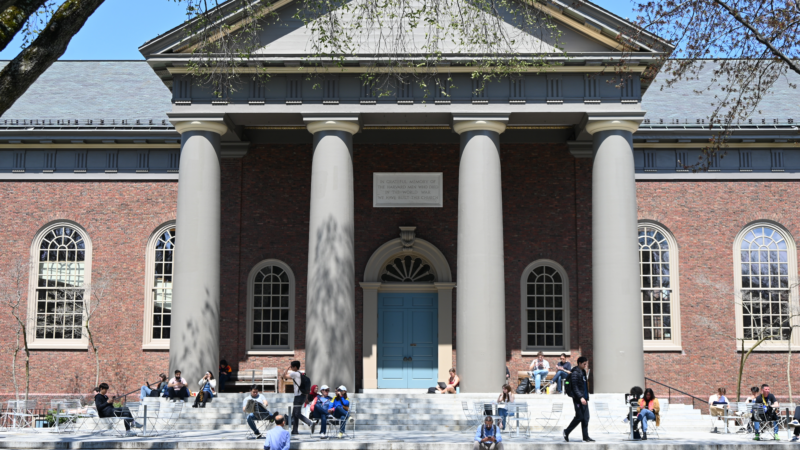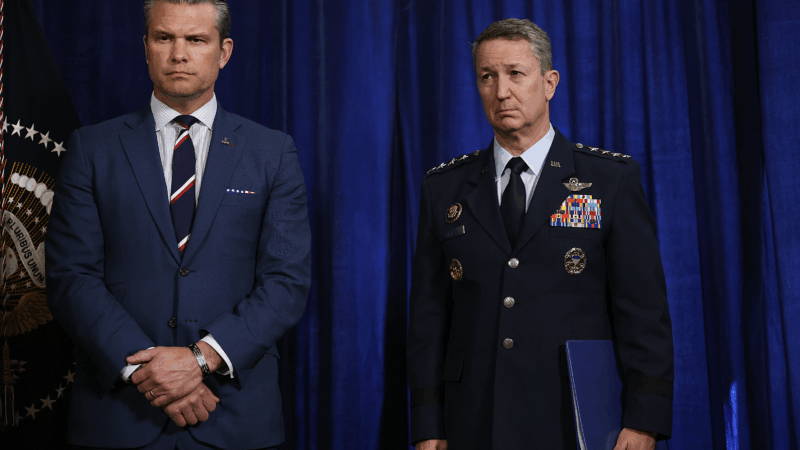Judge blocks Trump admin’s move to bar Harvard from enrolling international students
A federal judge has temporarily blocked the Trump administration’s move to revoke Harvard University’s ability to enroll international students.
Harvard filed the lawsuit on Friday morning, just a day after the Department of Homeland Security said it would terminate the school’s certification that authorizes it to enroll international students and scholars.
According to the university’s complaint, this revocation is a “blatant violation of the First Amendment,” and a retaliation against Harvard for rejecting “the government’s demands to control Harvard’s governance, curriculum, and the ‘ideology’ of its faculty and students.”
Before Federal Judge Allison Burroughs issued the temporary restraining order, DHS told currently enrolled visa holders that they “must transfer to another university in order to maintain their nonimmigrant status.” Harvard has nearly 7,000 international students, which make up roughly 27% of the student body.
DHS Secretary Kristi Noem said in a statement that the Trump administration is “holding Harvard accountable for fostering violence, antisemitism, and coordinating with the Chinese Communist Party on its campus.”
Early Friday morning, Harvard’s president Alan Garber addressed the campus community in a letter. “We condemn this unlawful and unwarranted action,” he wrote, saying that the move by the Trump administration is not only a threat to the international students and scholars at Harvard, but also “serves as a warning to countless others at colleges and universities throughout the country who have come to America to pursue their education and fulfill their dreams.”
“Not knowing whether or not you’re going to have 25% of your students is something [Harvard] can’t leave until later in the summer,” says Shaun Carver, who has spent more than 20 years working in international education. He’s currently the executive director of University of California, Berkeley’s International House, a residential “living and learning” center that hosts nearly 600 students and scholars from around the world.
“This makes international students wonder if the U.S. is still a safe and welcoming place to study,” he says. “We’re already seeing fewer international applications this year.”
More than 1.1 million international students enrolled at U.S. colleges and universities in the 2023-24 school year. They do not qualify for federal financial aid, and so play a critical financial role in many schools.
In the last academic year, international students contributed nearly $44 billion to the U.S. economy, according to NAFSA: Association of International Educators.
Video of Clinton depositions in Epstein investigation released by House Republicans
Over hours of testimony, the Clintons both denied knowledge of Epstein's crimes prior to his pleading guilty in 2008 to state charges in Florida for soliciting prostitution from an underage girl.
Some Middle East flights resume, but thousands of travelers are still stranded by war
Limited flights out of the Middle East resumed on Monday. But hundreds of thousands of travelers are still stranded in the region after attacks on Iran by the U.S. and Israel.
‘Hamnet’ star Jessie Buckley looks for the ‘shadowy bits’ of her characters
Buckley has been nominated for a best actress Oscar for her portrayal of William Shakespeare's wife in Hamnet. The film "brought me into this next chapter of my life as a mother," Buckley says.
How, who, and why: NPR flips its famous letters to defend the right to be curious
NPR is standing up for the public's right to ask hard questions in a national campaign dubbed "For your right to be curious." At NPR's headquarters, on billboards in New York City, Chicago, and Washington, D.C., and across social media, NPR's three iconic letters transform into "how," "who," and "why" — a bold declaration of its commitment to fight for Americans' right to ask questions both big and small.
Oil prices surge, but no panic yet, as Iran war continues
Global oil prices are in the high $70s as traffic through Strait of Hormuz comes to a halt. Some analysts have warned they could top $100 a barrel if the stoppage is prolonged.
Hegseth: ‘We didn’t start this war but under President Trump we’re finishing it’
The remarks are the first to reporters since the U.S.-Israeli military operations against Iran began Saturday despite weeks of talks designed to stave off a conflict.








